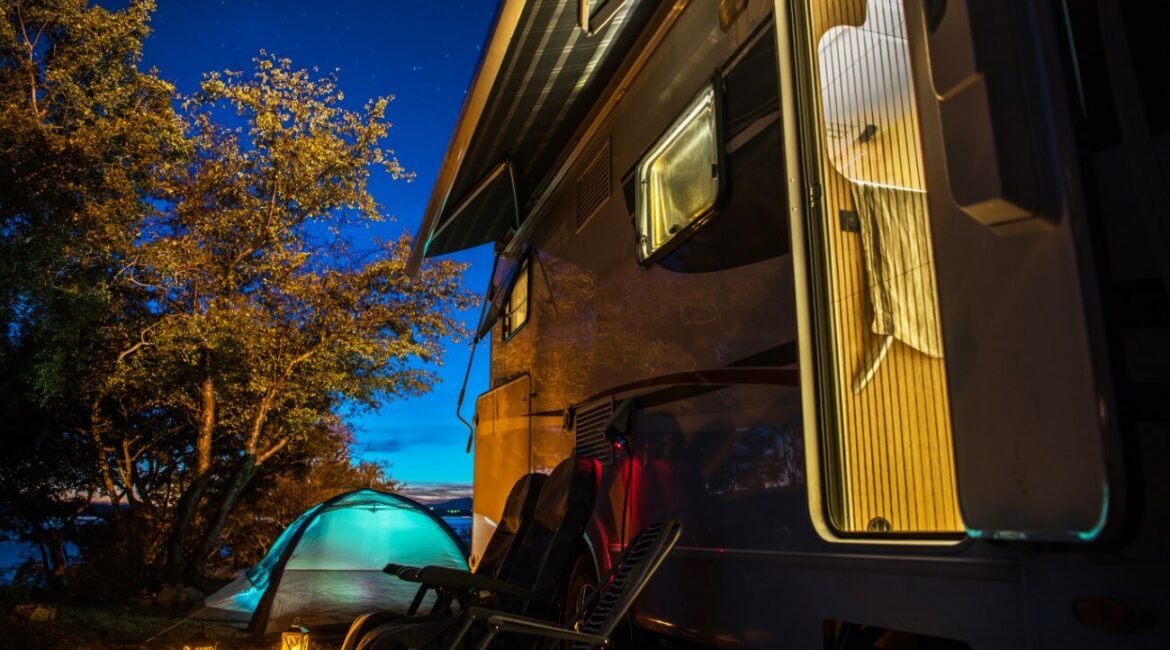If you’re gearing up for an RV adventure, you’ve got a lot to think about. And one essential aspect is RV rental insurance. Hi, I’m Jane, and in this guide, I’ll walk you through the eight things you absolutely need to know about RV rental insurance. Just like you prepare for your camping journey, let’s ensure you’re prepared for any unexpected bumps on the road.
Understanding RV Rental Insurance: 8 Key Points
1. Types of Coverage:
- Liability: Covers damages and injuries to others.
- Collision: Protects your RV in case of an accident.
- Comprehensive: Covers non-accident-related damages like theft or vandalism.
- Personal Effects: Insures personal belongings inside the RV.
2. Rental Agency Insurance:
- Agency Coverage: Most rental agencies offer insurance, but it can be expensive.
- Check Your Policy: Review your existing auto insurance to see if it covers RV rentals.
3. Credit Card Coverage:
- Credit Card Benefits: Some credit cards provide rental insurance for RVs; check your card’s terms.
4. Deductibles:
- Deductible Amount: Understand your deductible and choose a level you’re comfortable with.
5. Additional Drivers:
- Policy Additions: Check if your policy covers additional drivers, and if not, consider adding them.
6. Trip Interruption:
- Coverage: Look for policies that include trip interruption coverage for unexpected events.
7. Rental Length:
- Rental Duration: Ensure your policy covers the entire duration of your RV rental.
8. RV Inspection:
- Document Pre-Existing Damage: Before hitting the road, document any pre-existing damages to avoid disputes later.
Evaluating Roadside Assistance Options
Just like a reliable compass in the wilderness, roadside assistance can be a lifesaver during your RV adventure. It’s essential to check if your RV rental insurance or existing auto insurance includes roadside assistance, which can help in case of mechanical failures, flat tires, or if you’re locked out of the RV. Consider services like AAA’s RV Roadside Assistance, which offers comprehensive help specific to RVs. Their assistance can provide peace of mind, much like knowing you have a sturdy tent when camping in unpredictable weather.
Understanding Gap Coverage
Gap insurance plays a crucial role, similar to how a rainfly keeps your belongings dry during a storm. It covers the difference between what you owe on your RV and its current market value if it’s totaled or stolen. This type of coverage is especially crucial when renting more expensive RV models. A resource like “RV Insurance 101” available on Amazon can provide deeper insights into gap coverage and help you decide if it’s a necessary addition to your insurance plan.
Selecting the Right Insurance for International Trips
If your RV adventure crosses borders, standard rental insurance might not suffice. Similar to how different terrains require different hiking gear, different countries might have specific insurance requirements or recommendations. Investigating international RV insurance options ensures you’re covered no matter where the road takes you. Guides like “The RVer’s Bible” can offer valuable advice for international RV travel and are available on Amazon.
Insurance for Pet Owners
For RVers bringing along furry friends, it’s essential to check if your rental insurance covers pet injuries or damages caused by pets. Just as you wouldn’t go hiking without the right gear for your pet, don’t overlook this crucial aspect of your RV insurance. Products like pet seat covers or barriers, such as the ‘PetSafe Happy Ride Metal Dog Barrier’, found on Amazon, not only protect your pets but also keep your RV interior safe, potentially avoiding extra charges.
Choosing Insurance with Environmental Damage Coverage
Environmental damage, from hail storms to wildfires, can unexpectedly impact your RV trip. Hence, considering insurance that covers environmental damages is as important as packing the right attire for changing weather conditions. This coverage can protect against costs arising from natural disasters, ensuring your financial protection mirrors your physical safety. Guides like “The Complete RV Handbook” on Amazon provide more comprehensive insights into preparing for environmental challenges during RV travels.
FAQ
Do I need RV rental insurance if I already have auto insurance?
Yes, it’s wise to have RV rental insurance to cover the unique risks of RV travel, even if you have auto insurance.
What is liability coverage, and why do I need it?
Liability coverage pays for damages and injuries to others in case of an accident you’re at fault for.
Can I add additional drivers to my RV rental insurance policy?
Some policies allow you to add additional drivers, so check with your provider.
How does trip interruption coverage work, and is it necessary?
Trip interruption coverage can reimburse you for expenses if your trip is unexpectedly cut short; it’s a good option to consider.
What should I do if I notice pre-existing damage to the RV before renting it?
Document any pre-existing damage thoroughly and inform the rental agency to avoid disputes.
In conclusion, RV rental insurance is crucial to protect yourself and your RV during your camping adventures. Understanding the types of coverage, considering rental agency options, and knowing your existing insurance and credit card benefits are key steps in ensuring a worry-free journey. By keeping these eight points in mind, you’ll be well-prepared for your RV rental experience.
- A Chat with Nate and Mika, Christian Wedding Photographers - July 18, 2024
- Ultimate Guide To Playing Online Casinos - May 27, 2024
- Addiction Recovery Books Worth Reading - January 24, 2024









